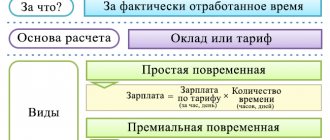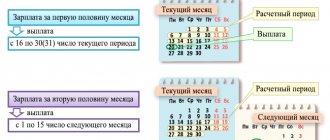Who are public sector employees and civil servants?
Not everyone understands the difference between a civil servant and an ordinary public sector employee. Civil service employees include the following categories:
- Customs officers.
- Tax officials.
- Border service workers of the FSB of Russia.
- Rospotrebnadzor specialists.
- Migration authorities employees.
In 2012, the Russian President signed a decree that provided for a significant increase in the salaries of such specialists by 2021. It was assumed that in the period from 2021 to 2021, about 4.6 trillion rubles will be spent on the implementation of this program. Of these, a quarter was included in federal budget expenditures, and the rest is planned to be covered from regional budgets.
Many years have passed since then, but no significant progress has yet been seen. The economic crisis has also affected public sector employees.
However, the country's main financiers say that there will be indexation, but it will be gradual. Discussions also affected civil servants: at the end of last year it was announced that, along with members of the government, their salaries would not be increased yet.
Video: which public sector employees got their salaries raised in Russia
Find out from the video:
- which employees will have their salaries increased;
- How will the promotion work?
Salaries of public sector workers
The salary level of these specialists is not disclosed. You can only find out about them informally, for example, through friends. Unlike, for example, library and museum workers, such employees do not receive the same salaries. The employees of these structures are paid various bonuses and bonuses, that is, a whole reward system has been developed.
According to statistics, the number of civil servants in 2021 is 675.5 thousand people. In addition, another 309 thousand government employees work locally. However, compared to 2014-2015, their number has decreased significantly.
The average salary of civil servants in the country is 39.1 thousand rubles. However, the spread across the country is quite large: for example, if the salary of officials in the capital is 60.7 thousand rubles, then in Dagestan, Ingushetia or the Karachay-Cherkess Republic the salary level for similar work is 25 thousand rubles.
However, there are people in the country who are no less important to it: doctors, teachers, cultural workers. Remuneration for these specialists is also made from the federal or local budget. The salaries of doctors and teachers are low, so representatives of these professions are waiting with particular excitement for news about salary indexation, because for them this is the only source of livelihood.
The Russian authorities find it difficult to name exact dates. The economic crisis does not want to go away from Russia, so everything depends on oil prices and the development of the economy as a whole. In addition, at least a minimal drop in inflation rates is necessary. There was even an opinion in the corridors of power that now was not the time to increase the pay of those who receive it from the state treasury: there are not enough funds, and another state loan will become a heavy burden for Russia.
Video: indexation of public sector salaries in 2021
Find out from the video:
- when salary increases are expected;
- what amendments have been made to the legislation.
Indexation of civil servants' salaries in 2021
For all civil servants, Law No. 79-FZ establishes mandatory annual indexation of salaries. The purpose of indexation is to compensate for the rise in consumer prices for goods and services and to prevent a decrease in the real content of employee remuneration.
Salaries do not increase automatically. There is a specific procedure for this. So:
- salary increases for federal civil servants are carried out on the basis of the law on the federal budget for the corresponding year and the presidential decree on increasing salaries for civil servants (Clause 11, Article 50 of Law No. 79-FZ);
- the decision to increase wages for civil servants of a constituent entity of the Russian Federation is made in accordance with the capabilities of the regional budget and on the basis of the law on the budget of the constituent entity of the Russian Federation for the corresponding year (Clause 12, Article 50 of Law No. 79-FZ).
When salaries are indexed, the size of additional payments, calculated based on the size of the corresponding salary, also increases.
Let us recall that the effect of this norm was suspended for a long time (from 2013 to 2021), and therefore the salaries for civil service positions were not indexed.
Indexation resumed in 2021. In 2021, the monthly salaries of federal civil servants were increased by 1,043 times. In the same year, a number of constituent entities of the Russian Federation increased the monthly salaries of their civil servants. Thus, salaries for Moscow civil servants were increased 1,049 times (Decree of the Mayor of Moscow dated December 29, 2018 No. 115-UM).
A further increase in civil servant salaries is expected in 2020. However, despite the general trend towards increasing the salary of this category of workers, changes in this area will not yet affect all civil servants.
Who will get a salary increase this year and by how much?
However, according to the head of government, increasing salaries for public sector employees this year is a done deal. It will affect doctors, school teachers, as well as teaching staff. We have not forgotten about students who will receive increased scholarships.
Exact figures are not given, but according to information provided by the Minister of Finance, on average, wages will increase by at least 16%.
Since wages in different areas can differ by two or more times, wage increases this year in Russia will also be uneven. In addition, the amount of the bonus depends on length of service, category and a number of other factors. For example, it will take into account what duties the employee performs and whether he or she has additional workload.
Even the rating of the establishment matters. For example, teachers who work in a school recognized as the best in the area will receive more employees from an institution that does not have such status. So some specialists will receive a salary increase of approximately one and a half times.
The head of the Ministry of Education explained that the earnings of specialists in the field under his jurisdiction will consist of two parts. About 70% of this will be salary, and the remaining 30% will be various incentive payments.
Interestingly, a survey was recently conducted among employees of medical institutions. Many of them said that this was the first time they had heard about wage indexation.
Video: Are salaries expected to increase for teachers and doctors?
What does the average salary of a civil servant include?
The average salary of a civil servant, which is also called the amount of salary, includes the following types of payments:
- civil servant salary, established in accordance with the position held and class rank;
- long service bonus;
- allowance for special working conditions;
- bonus for working with information constituting a state secret;
- bonuses for conscientious work, fulfillment of assigned tasks, etc.;
- material aid;
- payment accrued upon granting leave.
For civil servants working in the Far North or in territories equated to the northern ones, the amount of salary is determined taking into account the regional coefficient and the northern allowance.
What awaits pensioners
Despite many rumors and even official reports that the indexation of old-age pensions would be frozen, the government did not dare to take such a step. Everyone understands that pensioners in Russia are the most vulnerable category of the population. Unlike many Western countries, as well as the countries of the Middle East, Russian pensioners almost completely pay for medicines, utility bills, and everything else. So pensions will be indexed. Another thing is that they still lag behind the inflation rate.
The information that indexation will still be frozen for working pensioners is also not very pleasant. If the pensioner quits his job, it will be resumed.
Temporary transfer of a civil servant to another position is possible only with the consent of the parties to the contract
The Judicial Collegium for Civil Cases of the Supreme Court issued Ruling No. 5-KG20-158-K2 on a labor dispute between the Federal Property Management Agency and its former employee declaring her transfer to another position and subsequent dismissal illegal.
Transfer to a temporary position ended in dismissal
In August 2021, Natalia Kolgatina was hired into the civil service as deputy head of the portal technology development department of the Information Technology Directorate of the Federal Property Management Agency. A service contract was concluded with her for an indefinite period. Subsequently, the woman applied to management with an application to appoint her to the position of deputy head of the information resources operation department in connection with K., who was filling this position, going on maternity leave.
The request was fulfilled, and on October 8, 2021, an order was issued to transfer Natalia Kolgatina to a new position. A month later, the departmental personnel service sent the woman a notice of familiarization with the transfer order, since she was on sick leave. The very next day, Natalia Kolgatina withdrew her application to fill the desired position; the document was received by the Federal Property Management Agency on November 27, 2021. On the same day, she wrote to the head of the department with a request to recognize her transfer from the old position to the new one as illegal and to restore her to the position of deputy Head of Portal Technologies Development Department.
At the end of November 2021, K., who was on maternity leave, notified management that her maternity leave would end in December of the same year. In this regard, the employer informed Natalia Kolgatina about the termination of the service contract concluded with her to fill a new position in connection with her colleague’s return to work. In December 2021, she was dismissed from the civil service due to the expiration of her fixed-term service contract.
At the same time, the dismissed employee appealed to the Ministry of Economic Development and the Moscow Prosecutor's Office with complaints about the illegality of the transfer from a permanent position to a position filled by another civil servant, and subsequent dismissal from the civil service.
The lower courts sided with the Federal Property Management Agency
Next, Natalia Kolgatina filed a lawsuit against her former employer to recognize the transfer and dismissal orders as illegal, demanding that she be reinstated in the civil service and pay compensation for moral damage in the amount of 850 thousand rubles. According to the plaintiff, she wrote an application for transfer to a new position under psychological pressure and misleading information about the upcoming departmental reorganization. The woman added that she was not familiarized with the order to transfer to another position, she did not sign a service contract to fill the new position, and after the transfer she continued to perform her previous duties, so the transfer to the new position did not actually happen.
During the trial, the defendant’s representative presented an act drawn up by employees of the personnel service of the Federal Property Management Agency on Kolgatina’s refusal to familiarize herself with the order of transfer to a new position for the period of maternity leave for K. and from signing a fixed-term service contract to fill this position. The court decision noted that the civil servant was not familiar with this act. Nevertheless, the court rejected the claim, recognizing the transfer to a new position and subsequent dismissal as legal. At the same time, the court found that Natalia Kolgatina personally submitted an application for transfer to a new position and was familiarized with the new job description. All this, the court decision emphasized, testified to the voluntariness of the plaintiff’s actions and the absence of a violation of her labor rights by the Federal Property Management Agency.
The court of first instance also pointed out the lack of evidence reliably confirming the fact that the plaintiff was under pressure from the employer’s representative, as well as continuing to perform her previous functions in the new position. Subsequently, the court's decision survived appeal and cassation. At the same time, the second instance added that the plaintiff agreed in writing to be transferred to another position for a certain period - for the duration of her colleague’s maternity leave. As the appeal explained, the employee’s revocation of the statement she previously wrote has no legal significance, since the Civil Service Law does not provide for such a possibility.
The Supreme Court did not agree with the findings of the lower courts
Having considered the complaint of Natalia Kolgatina, the Judicial Collegium for Civil Cases of the Supreme Court recalled that in order to formalize official relations in the civil service, it is necessary not only to issue the relevant act of the government agency, but also to conclude a service contract, which comes into force from the moment it is signed by the parties.
In turn, the appointment of a civil servant to another (unvacant) civil service position in the same government agency not stipulated by his service contract for the period of temporary absence of the employee filling such a position on a permanent basis is possible only by agreement of the parties to the contract. Failure of a civil servant to sign amendments to an existing service contract or a fixed-term service contract for transfer to another position means that an agreement on such an appointment has not been reached. “Otherwise, it would be contrary to the basic principles of legal regulation of labor (service) relations on the free choice of work by a citizen on the basis of free consent, the prohibition of forced labor and discrimination in the field of labor and the stability of the civil service,” the Court concluded.
As the Supreme Court noted, the courts of the first and appellate instances, when resolving the claims of Natalia Kolgatina, did not apply these regulatory provisions defining the grounds and procedure for concluding a service contract, its essential conditions and the significance of the service contract when formalizing service relations, as well as the conditions for temporary replacement by a civil servant of another civil service positions. As a result, the actual legal relations of the parties and circumstances relevant to the case were not established.
The highest court listed a number of circumstances that needed to be established for the correct resolution of the case: whether the defendant followed the procedure for appointing the plaintiff to a new position; whether an agreement was reached between the Federal Property Management Agency and the plaintiff on such a transfer, taking into account the latter’s failure to sign a fixed-term service contract for a non-vacant position filled by K. on a permanent basis; as well as the fact that the plaintiff sent a written application to the department to withdraw and invalidate her application for transfer to a new position.
The Supreme Court added that the lower authorities did not give a legal assessment to the plaintiff’s arguments that she did not agree with the transfer from a permanent position to a temporary one. In addition, they ignored the woman’s allegations that she wrote an application for appointment to a new position forcibly under pressure from a representative of the employer in anticipation of organizational and staffing measures to reduce staff without indicating the date of filing this application, and her other arguments.
As the Court explained, the appeal’s conclusion that the Civil Service Law does not provide for a civil servant to revoke his consent to a transfer to another position is also untenable. The Supreme Court noted that this law does not prohibit the withdrawal of an application for the appointment of a civil servant as a temporary replacement for a non-vacant position until the parties sign the relevant changes to the existing service contract or until a fixed-term service contract is concluded in accordance with the established procedure. Thus, the acts of the lower courts were canceled, and the case was returned for a new trial at the first instance.
AG experts commented on the Court’s findings
Lawyer of the Moscow AP Pavel Andreev noted that during the consideration of the case in the Supreme Court, Lyudmila Pchelintseva, the chairman of the judicial panel for social labor disputes of the civil collegium of the Supreme Court, personally presided. The decision, he said, emphasizes the important argument that civil service legislation should be applied only in conjunction with the labor legislation of the Russian Federation.
“In this dispute, the lower courts assessed the factual circumstances of the case from the point of view of the employee’s will by writing an application for transfer, and the Supreme Court drew attention to the fact that until the parties have signed an agreement on transfer to another position, such a transfer is not considered carried out from the point of view of law, as labor and civil service legislation. The Supreme Court also emphasized that the civil servant did not actually take up new duties because she was in a state of temporary disability, which was not assessed by lower courts. The definition of the RF Armed Forces guarantees every civil servant the right to withdraw a submitted application for transfer to another position, just as it is guaranteed to employees from the point of view of labor legislation,” the expert explained.
He added that the judicial act is significant for law enforcement practice not only because it emphasizes the need for the simultaneous application of civil service legislation and labor legislation, but also because in labor relations and in the official relations of the civil service, not only the will of the employee and such local acts, such as statements or orders. “First of all, the agreement itself between the employee and the employer is important - both on the transfer to work and on any other essential conditions of the legal relationship between them. Only such an agreement signed by the parties entails the emergence of a new legal relationship for them, which was not done by the employer in this case, and this can no longer be made up for by him,” summed up Pavel Andreev.
Partner at the Law & Commerce Offer Law Firm, Anton Alekseev, believes that the Supreme Court, in fact, made one general conclusion that the procedure for employing a civil servant for the relevant position must be strictly observed. “What was important was the presence of a new fixed-term contract signed by the employee or the signing of amendments to the existing contract, as well as the fact that he was familiar with the order of appointment to a new position. In this case, the presence of an application for transfer to another position of the employee himself did not matter,” he explained.
According to the lawyer, the Supreme Court, in the absence of a concluded contract with the employee to work in a new position, qualified the order to transfer him to a new position as a temporary transfer of the employee to another position. “Accordingly, the Supreme Court justifiably applied the norms of the Labor Code governing the temporary transfer of an employee to another position. It should be noted that in the text of the ruling, the Supreme Court several times refers to the principle of stability of the civil service, which presupposes the constancy of official activities for each civil servant,” added Anton Alekseev.
Salaries of public sector workers by region
According to statistics, the salary of public sector employees in 2021 largely depends on the region of residence. However, this also applies to other Russians, who are also not spoiled by large salaries.
The average salary of all state employees in Russia is 29 thousand rubles. The highest salary level is in Moscow. Public sector workers living in Omsk receive the least.
Here are statistical data for cities, from which you can see how much workers in science and education receive:
- Moscow - 39,600 rubles.
- St. Petersburg - 31,600.
- Nizhny Novgorod - 17,600.
- Krasnoyarsk - 17,700.
- Omsk - 15,400.
- Kazan - 21,000.
- Ekaterinburg - 20,700.
- Volgograd - 15,700.
- Voronezh - 18,500.
- Perm - 21,300.
- Rostov-on-Don - 20,500.
- Samara - 21,700.
- Ufa - 19,100.
- Chelyabinsk - 19,500.
Pay attention to the video: average salary in Russia.
A somewhat different situation has developed in the housing and communal services sector. There, Volgograd, Ufa and Nizhny Novgorod claim the palm among the regions. Moscow and St. Petersburg, which are out of competition everywhere, of course, do not count.
In 2021, the salary statistics for public sector workers in Russia were as follows:
- Teaching staff of preschool educational organizations – 32,047 rubles.
- Teaching staff of educational organizations of general education – 39,453.
- Teaching staff of organizations for additional education of children – 36,147.
- Teachers and industrial training masters of educational organizations of primary and secondary vocational education – 36,510.
- Teachers of educational institutions of higher professional education – 84,148.
- Doctors and employees of medical organizations with higher medical (pharmaceutical) or other higher education, providing medical services (ensuring the provision of medical services) – 76,989.
- Nursing (pharmaceutical) personnel (personnel providing conditions for the provision of medical services) – 38,202.
- Junior medical personnel (personnel providing conditions for the provision of medical services) – 35,000.
- Social workers – 34,296.
- Workers of cultural institutions – 39,170.
- Research staff – 88,835.
- Teaching staff of educational, medical organizations or organizations providing social services to orphans and children without parental care – 37,598.
Salaries in Moscow and St. Petersburg for state employees are higher than for those who live in remote northern regions. The central and western regions of the country live much more modestly.
Statistics show that in many regions, the income of those who work for the state often does not reach the level of the average salary in the country. The rise in inflation cannot cover even the gradual increase in salaries of public sector employees.
We advise you to look at: expected salary in Russia in 2020-2021.
Are there any delays in salaries?
Despite the measures that the government is taking in connection with salary delays, this problem also affects public sector employees. It exists in many regions of the country: in Siberia, the Volga region, and a number of southern regions.
If previously salaries were most often delayed for law enforcement officers, now this also affects employees of educational institutions.

Implementation of a program to support state employees
In order to support public sector workers during the economic crisis, the government has developed a number of measures that will help do this. Here are the main activities that will be carried out as part of this program:
- Strengthened control over the expenditure of budget money.
- Work to improve labor efficiency and productivity.
- Anti-corruption measures, as well as tightening control over the income of employees holding high positions.
- Reorganization of institutions that spend budget funds ineffectively.
In addition, budgetary organizations will be given the opportunity to save money, which can be used to increase employee salaries. According to financier estimates, by changing the taxation scheme, savings of about 230 billion rubles per year will be achieved.

So public sector workers should not be discouraged. According to experts, by 2021 the promised salary increase will still take place.
There is another good news: the closure of state enterprises and layoffs of people are not planned in the near future.







